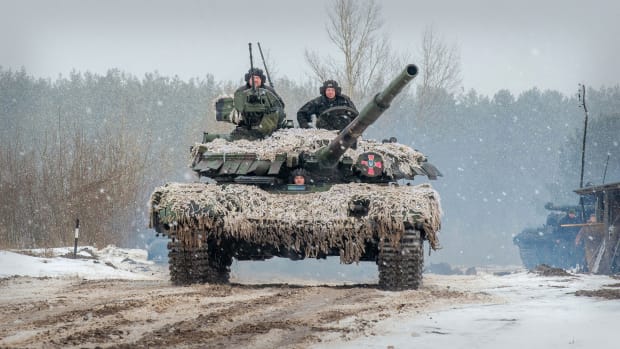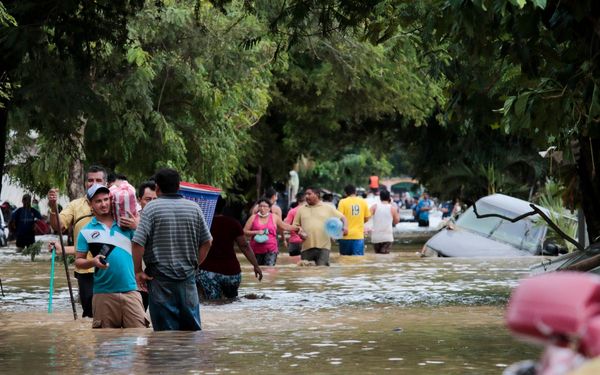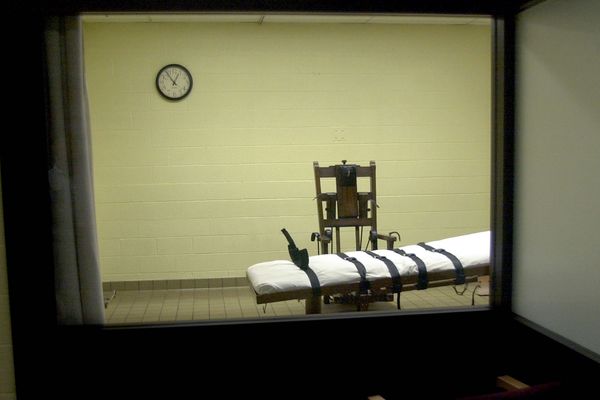A loophole in American sanctions on doing business with Russian banks has been allowing Goldman Sachs to continue to act as a broker in the country, despite a statement saying it is "winding down" its operations in the country.
Russia's unprovoked invasion of Ukraine three weeks ago has lead to a rush of American companies out of the company.
But Goldman has continued to use a Treasury Department’s Office of Foreign Assets Control loophole to legally conduct business for clients there, snapping up Russian debt and muddying the waters over what is not fully sanctioned.
While the U.S. outlawed Russian banking transactions earlier this month, it still left the door open for financial institutions that were doing business on the secondary markets.
That's allowed Goldman to continue to profit off of debt still in the marketplace — particularly while it remains legal to do so, and before new sanctions on any debt produced since the invasion of Ukraine becomes off limits.
“In our role as market maker, we have helped U.S. real money and pension fund investors exit their Russian exposure by transferring risk to clients better placed to manage such exposures,” Goldman said in a statement.

Chris McGrath/Getty Images
So How is Goldman Making Money Off the War?
Goldman's business within these particular parameters has largely been buying up masses of Russian debt at depressed prices and then churning them over to American hedge funds.
They will then likely sell that debt when it stabilizes and make a killing on the profit made in the margins of the trade.
While international banks are also likely in the same market doing the same thing, how much each company's shareholders know about it remains to be seen. We have such thorough knowledge of Goldman's business there mostly due to a thorough and impressive investigation into the bank conducted by CBS News that you can read here.
So What Law Allows This to Continue Under Sanctions?
Everything Goldman is doing is all completely legal, under the OFAC language of the law.
"The Russia-related Sovereign Transactions Directive does not prohibit trading in the secondary markets for debt or equity of the Central Bank of the Russian Federation, the National Wealth Fund of the Russian Federation, or the Ministry of Finance of the Russian Federation (collectively, “Directive 4 entities”)," it reads, "provided that no Directive 4 entity is a counterparty to such a transaction."
It does lay out one caveat, however, which a bank Goldman's size likely has a football team of lawyers watching like hawks to make sure it steers clear of even the slightest possible legal charges of war profiteering.
"Directive 1A under E.O. 14024, “Prohibitions Related to Certain Sovereign Debt of the Russian Federation” (Russia-related Sovereign Debt Directive)," it reads. "prohibits U.S. financial institutions from participation in the secondary market for ruble or non-ruble denominated bonds issued after March 1, 2022 by the Directive 4 entities."

Sergey BOBOK / AFP) (Photo by SERGEY BOBOK/AFP via Getty Images
War Profiteering or Just Business As Usual?
It is worth noting that for most of Europe's history, ground wars that have broken out on the continent have largely been ignored by surrounding countries until they begin affecting business for the ruling elites.
But since the beginning of the 20th century, an increasingly globalized economy has made that almost completely impossible. Now, what happens to Russian debt affects markets all over the world — and attracts the attentions of regulators looking to make the war as painful as possible for the aggressor in a bid to force peace.
For now, the Russian/Ukrainian war has been following the rough pattern of the first weeks of World War I, with many international companies attempting to wrap up their operations in the war zone.
But many of them are doing so as carefully within the letter of the law as they must, betting either that the conflict won't continue for much longer or that they should make hay while the sun shines.
That translates to this: What is legal in the first month of a war may not be legal even a few days later.
So what might be legitimate business happening fully within regulatory boundaries may very soon be outlawed, either by the court of public opinion or international oversight, or both — as the morality of making money on assets distressed by war becomes more entrenched.







